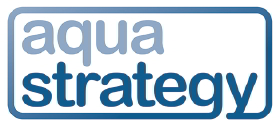Issue:
The World Economic Forum is an influential, self-appointed harnessing of the global elite. It uses its annual global risks report to help shape debate and decision-making. Keith Hayward asks if the latest edition represents a missed opportunity.
The message from this year’s edition of ‘The Global Risks Report’, published by the World Economic Forum, should be clear and unequivocal. The risk identified by its panel of global decision-makers as being most likely to occur is extreme weather events. Not only this, the panel sees this risk as ranking second in terms of the scale of its impact. Combine the two and you would conclude that it is the threat of storms and flooding that is keeping the ‘masters of the universe’ who gather each year in Davos awake at night.
Instead, WEF gives greatest prominence to five key challenges, such as how to revive global economic growth and reform market capitalism. So why the disconnect?
The WEF agenda
‘We must look past our own narrow interests and attend to the interests of our global society. That duty begins with our leaders, who must begin to engage in open dialogue and a common search for solutions to the five major challenges on the horizon,’ wrote Klaus Schwab, WEF founder and executive chairman, in advance of the January meeting.
To view the full article, log in here. New users can register here for free trial access, or subscribe here.
Keywords:
- climate change, flooding, risk






